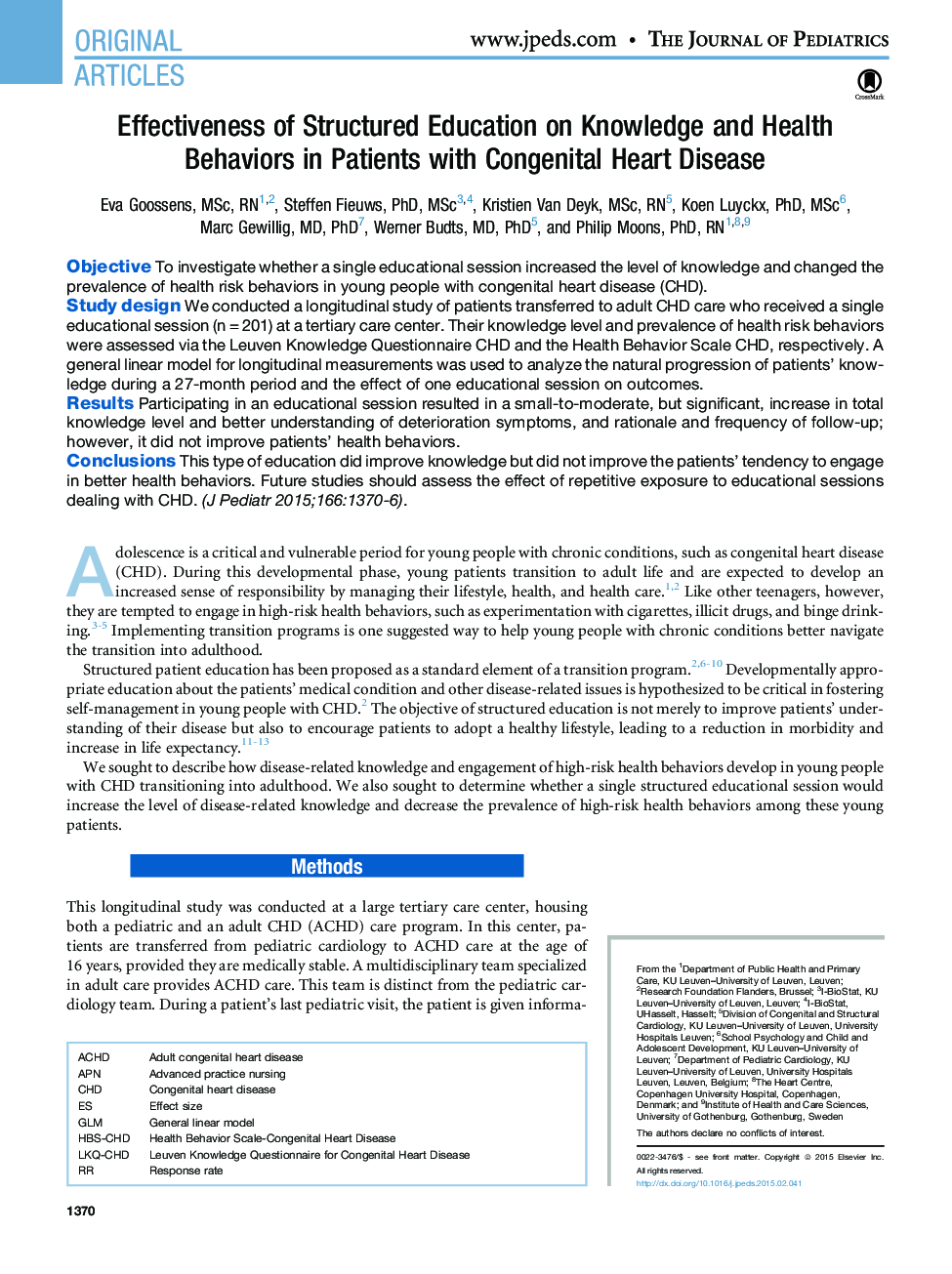| Article ID | Journal | Published Year | Pages | File Type |
|---|---|---|---|---|
| 6220792 | The Journal of Pediatrics | 2015 | 8 Pages |
ObjectiveTo investigate whether a single educational session increased the level of knowledge and changed the prevalence of health risk behaviors in young people with congenital heart disease (CHD).Study designWe conducted a longitudinal study of patients transferred to adult CHD care who received a single educational session (n = 201) at a tertiary care center. Their knowledge level and prevalence of health risk behaviors were assessed via the Leuven Knowledge Questionnaire CHD and the Health Behavior Scale CHD, respectively. A general linear model for longitudinal measurements was used to analyze the natural progression of patients' knowledge during a 27-month period and the effect of one educational session on outcomes.ResultsParticipating in an educational session resulted in a small-to-moderate, but significant, increase in total knowledge level and better understanding of deterioration symptoms, and rationale and frequency of follow-up; however, it did not improve patients' health behaviors.ConclusionsThis type of education did improve knowledge but did not improve the patients' tendency to engage in better health behaviors. Future studies should assess the effect of repetitive exposure to educational sessions dealing with CHD.
